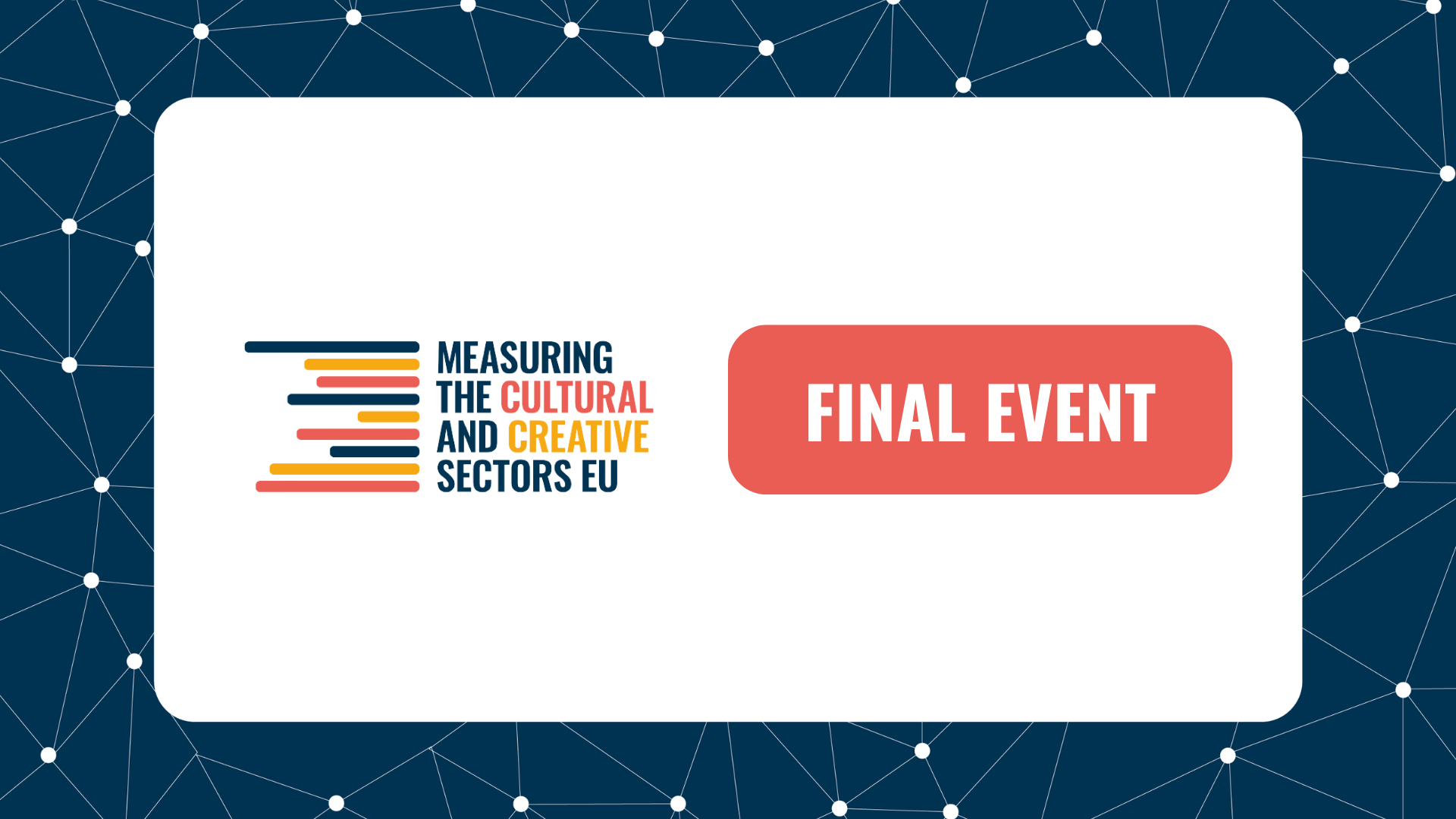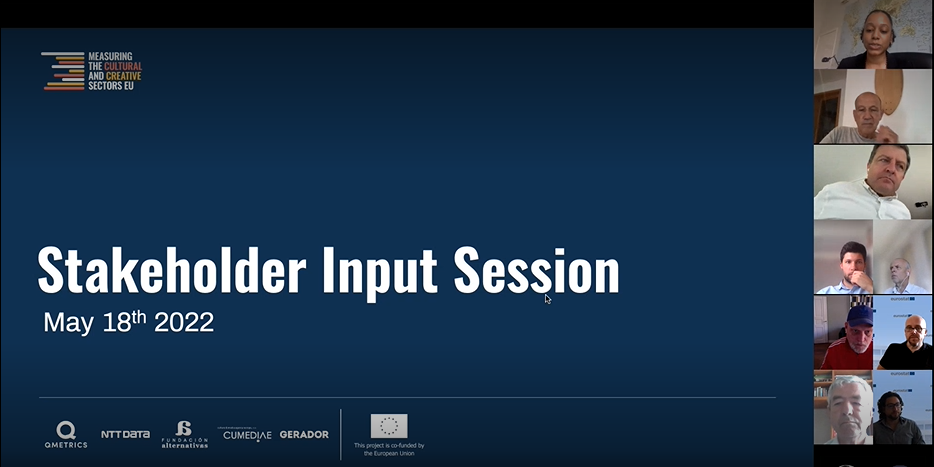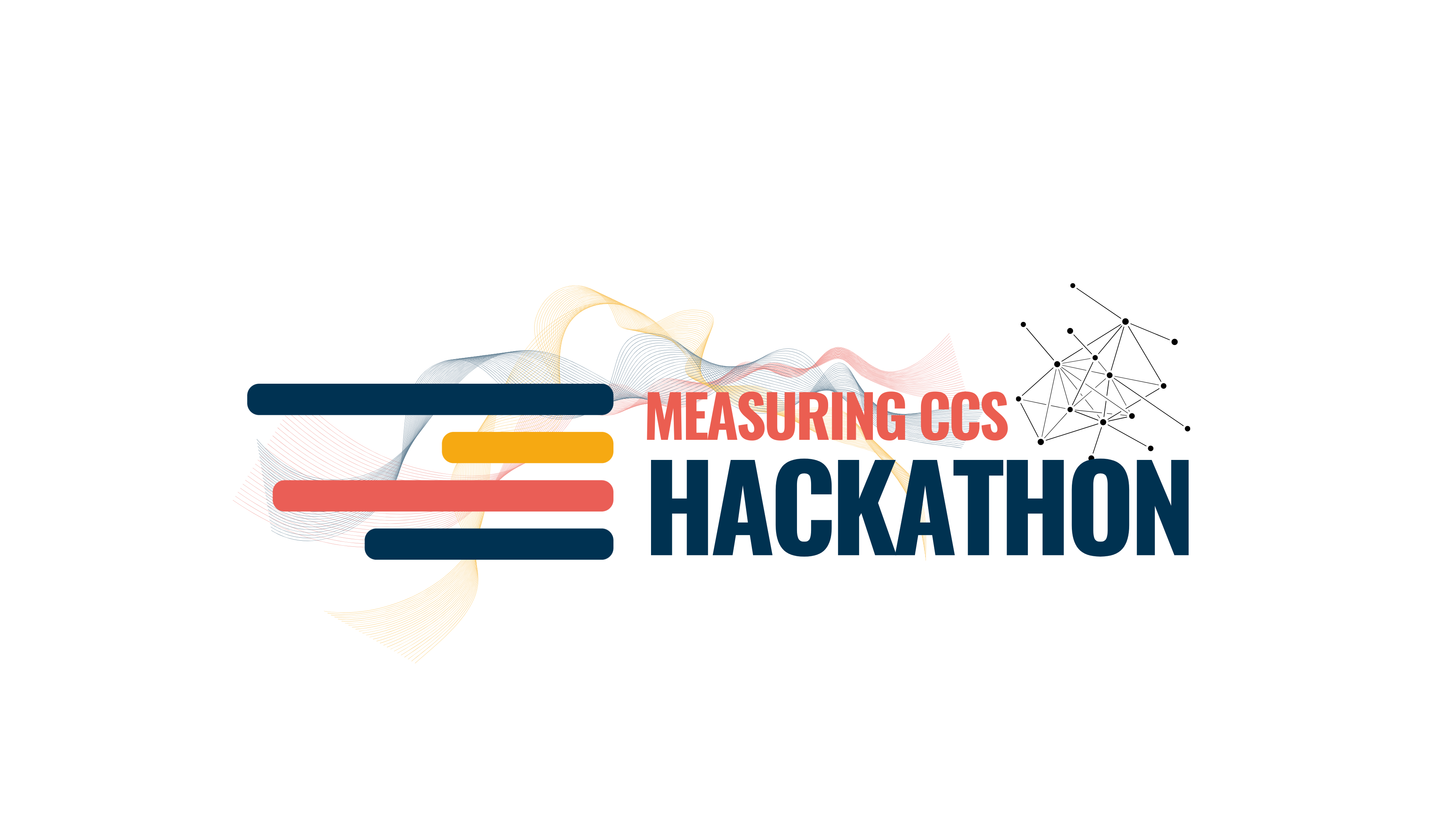Final Event
After almost two years of extensive data research at the European, national and industry levels supported by interactive stakeholder events, the Measuring CCS Consortium was honoured to share the project’s outcomes in its Final Report and Factsheets.
Measuring CCS hosted an online Final Event on 23 November 2022 from 4:00 to 6:00 p.m. (CET) on a Youtube Livestream. This event aimed to present and discuss the results of the project. The final outputs and outcomes were delivered by the researchers led by Professor Manuel Villares of Qmetrics. Subsequently, a discussion by policymakers and CCS representatives followed with the topic: The relevance of CCS statistics for cultural practitioners and decision makers – difficulties and challenges.
The Consortium wants to thank all participants and stakeholders for actively engaging with researchers and panellists at the Final Event!
Stakeholder Input Session
The Measuring CCS Stakeholder Input Session took place online on Wednesday, May 18th. The purpose of this exercise was to gather relevant actors within the Cultural and Creative Sector in Europe together with the Measuring CCS Consortium (NTT Data, Qmetrics, Gerador, CUMEDIAE, Fundacion Alternativas) as well as representatives of the European Commission and EUROSTAT, to propose a new framework that incorporates an updated definition of the ‘Cultural and creative sectors’ and its precise scope. The number of participants in the session was 49, with representatives of several umbrella organisations and medium & smaller cultural and creative institutions, from different geographical points across Europe.
The facilitators of the session included members of the Measuring CCS Research Board:
– Manuel Vilares, Research Director, Measuring CCS’ Research Coordinator and Isabela Fonseca, Research and Data Analyst, from Qmetrics.
– Christian Martínez, Business Consultant, Measuring CCS’ Research lead and Giacomo Bulian, Business Consultant from NTT Data.
During the session, participants were introduced to the main research topics. Subsequently, they were invited to provide input on these two strands of work:
– A proposal for a new framework for Cultural statistics, incorporating an updated definition of ‘Cultural and creative sectors’ and its precise scope.
– A proposal for an approach for updating the Cultural statistics framework towards the measurement of digital cultural services.
The Stakeholder Input Session was successfully carried out and concluded with the collection of highly valuable input from relevant stakeholders, which will greatly support the project’s research process.
The Hackathon
Challenges
Challenge 1
Surveys on cultural ‘digital’ services – How to measure the effect of digitalisation in the CCS? (from 9:00 to 15:30)
In the last two decades technological advancements have shaped the economy and shifted trade to increasingly digital forms. In this sense, tracing the cultural and creative sectors has become more challenging as new digital ways of consumption and participation have emerged. Within this context, it is important to develop new methodologies to better assess the effect of digitisation on the CCS and capture its impact on these sectors.
What does ‘cultural and creative sectors’ mean in statistical terms? – Concept of CCS and its scope (from 10:00 to 16:30)
For more than a couple of decades, we have been discussing the profile and attributes of activities that we sense may be very relevant for the functioning of the European socio-economic system. The cultural industries are said to be crucial in answering the declining economic position of Europe. To which cultural and industrial sectors are referred to, and how to support these exactly through what policy measures, is yet not always specified in this recent discourse.
Challenge 2
Challenge 3
CCS employement and business statistics – What is the best way to measure employment in CCS? How to capture second jobs and micro-enterprises? (from 12:00 to 18:30)
An important gap involves the current issues related to cultural employment. To date, it is still not possible to fully map the CCS including all dimensions that make the sector’s uniqueness. One of the factors that are currently not considered is the involvement of non-standard workers in CCS. Another measurement gap involves very small-scale companies that are neither represented in the statistics nor included in the social dialogue and policy discussions.
Facilitators and researchers
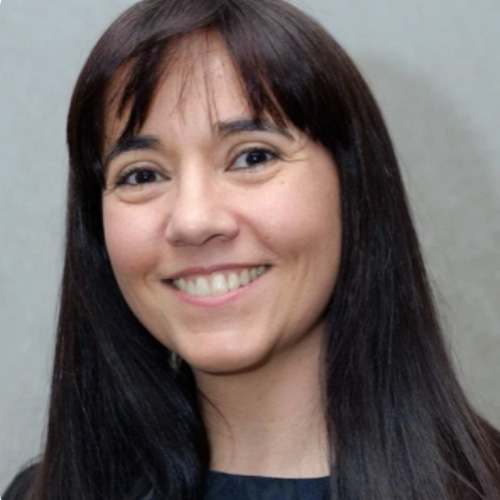
Susana Justo
QMetrics
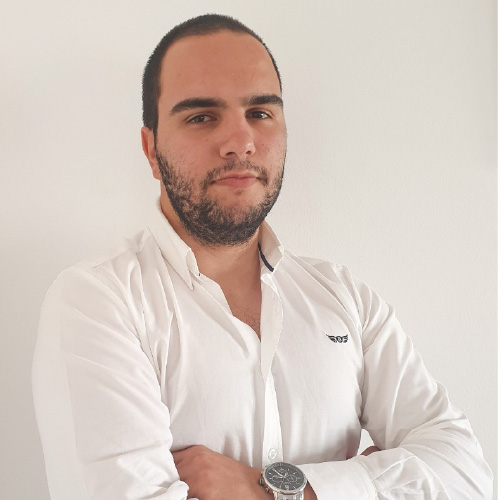
Diogo Colaço
QMetrics
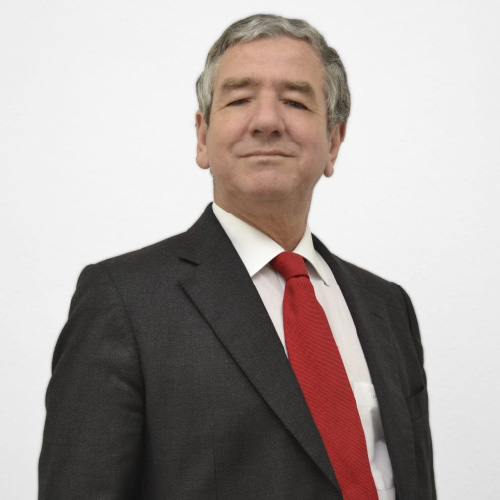
Manuel Vilares
QMetrics
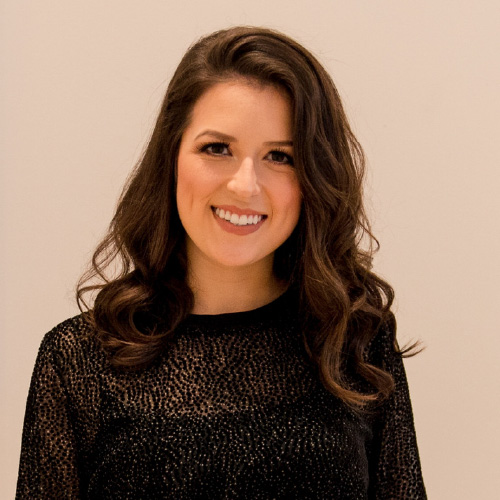
Isabela Fonseca
QMetrics
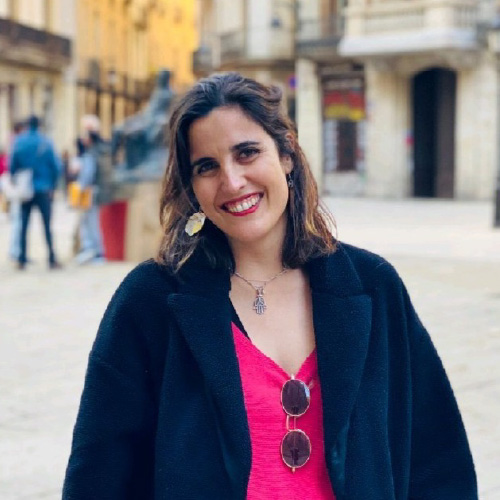
Julia Turon i Loren
NTT Data
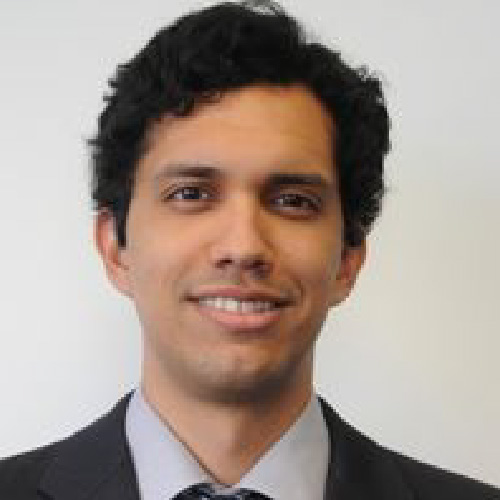
Christian Martínez
NTT Data
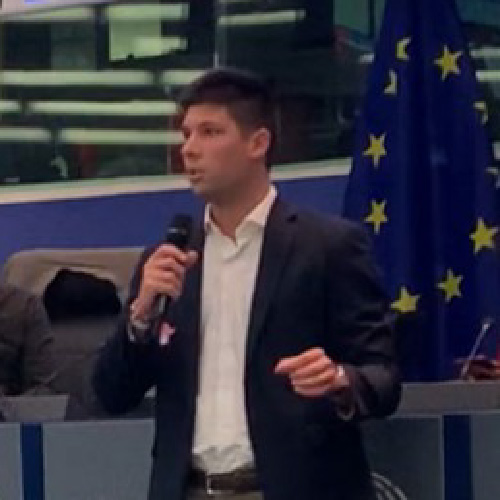
Giacomo Bulian
NTT Data
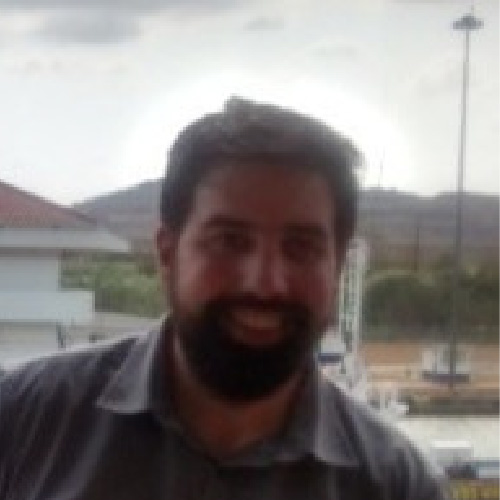
Isaac Pozo
Fundación Alternativas
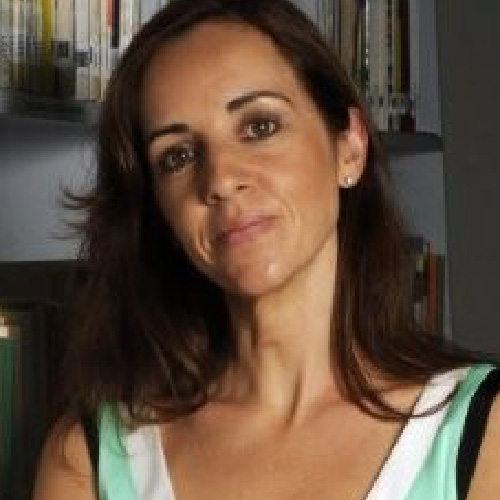
Inma Ballesteros
Fundación Alternativas
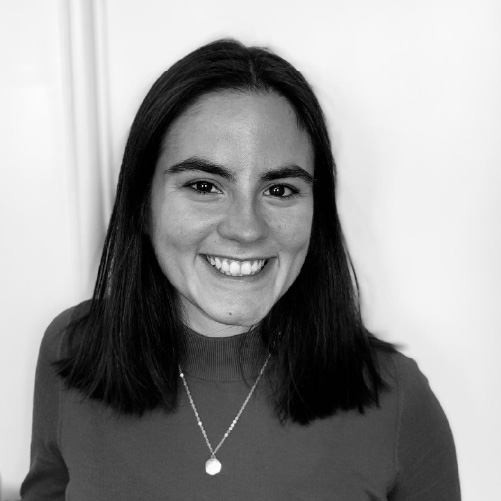
Clara Amante
GERADOR
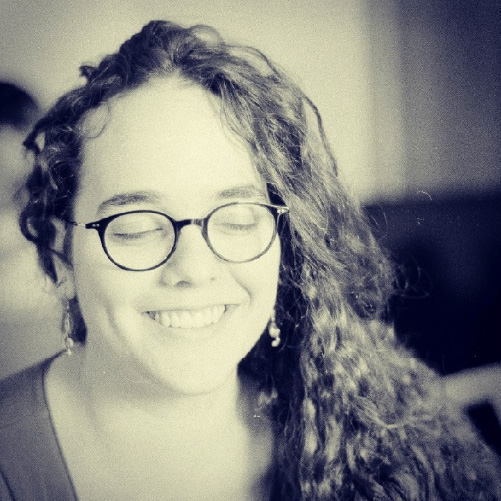
Margarida Botelho
GERADOR
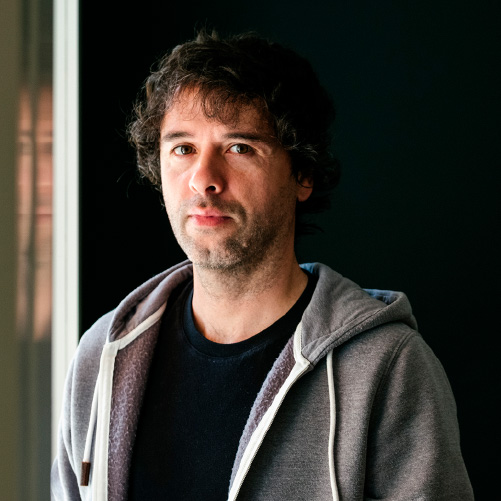
Tiago Sigorelho
GERADOR
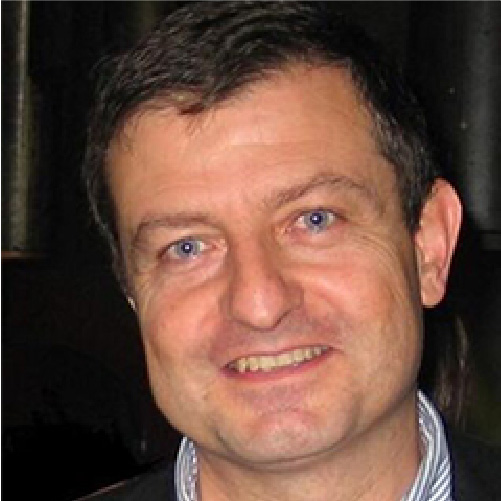
Ignasi Guardans
CUMEDIAE
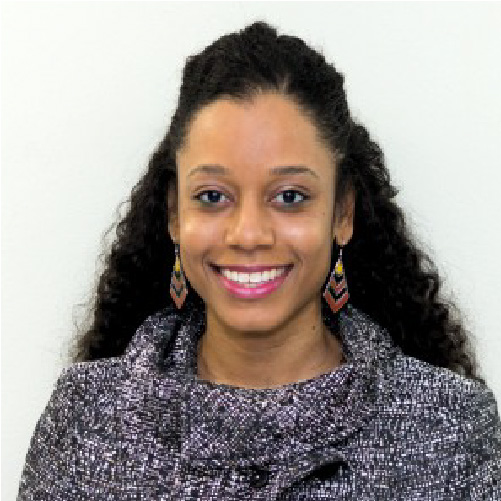
Stefanie Thomas
CUMEDIAE
SIGN UP FOR OUR NEWSLETTER!


